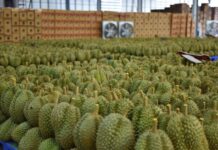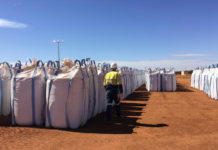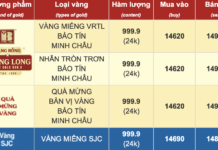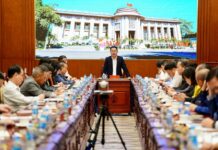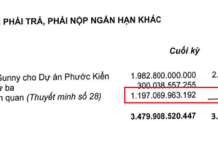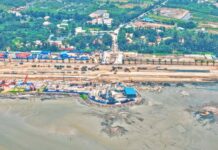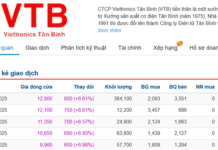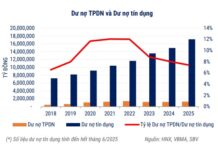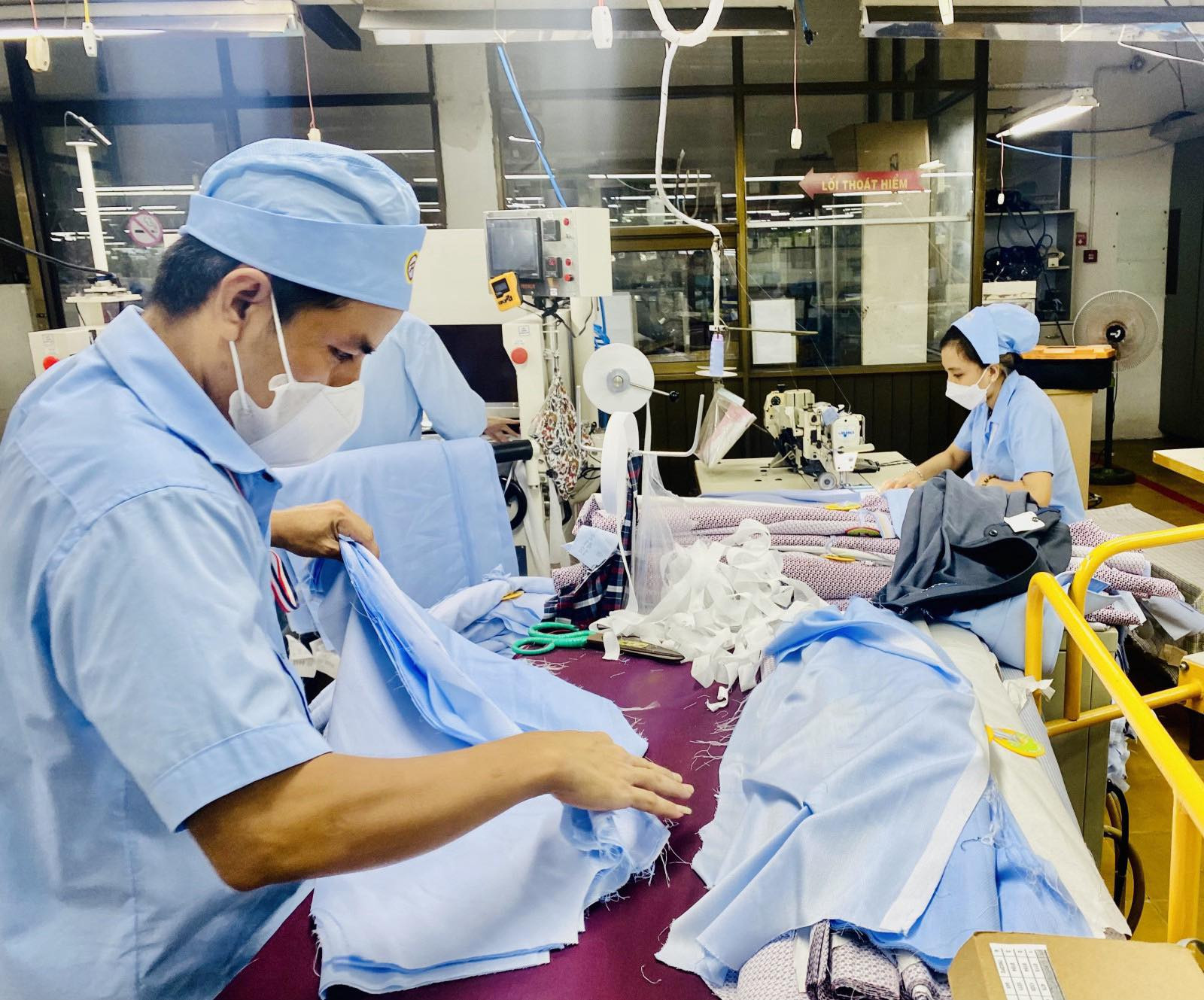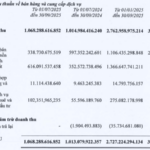Go Green or Get Left Behind
In an interview with reporters, Mr. Phan Thanh Duc, General Director of Binh Duong Garment Company, revealed that the company began discussing the transition to green manufacturing five years ago.
“In reality, this is a global trend. To sell our products, we must make the switch—we have no other choice,” he stated.
According to the company leader, the majority of their garments are exported to Europe and the United States. These importers have supplier networks across Southeast Asia. Consequently, if they set green standards for their products, companies that fail to comply will be eliminated from the market.
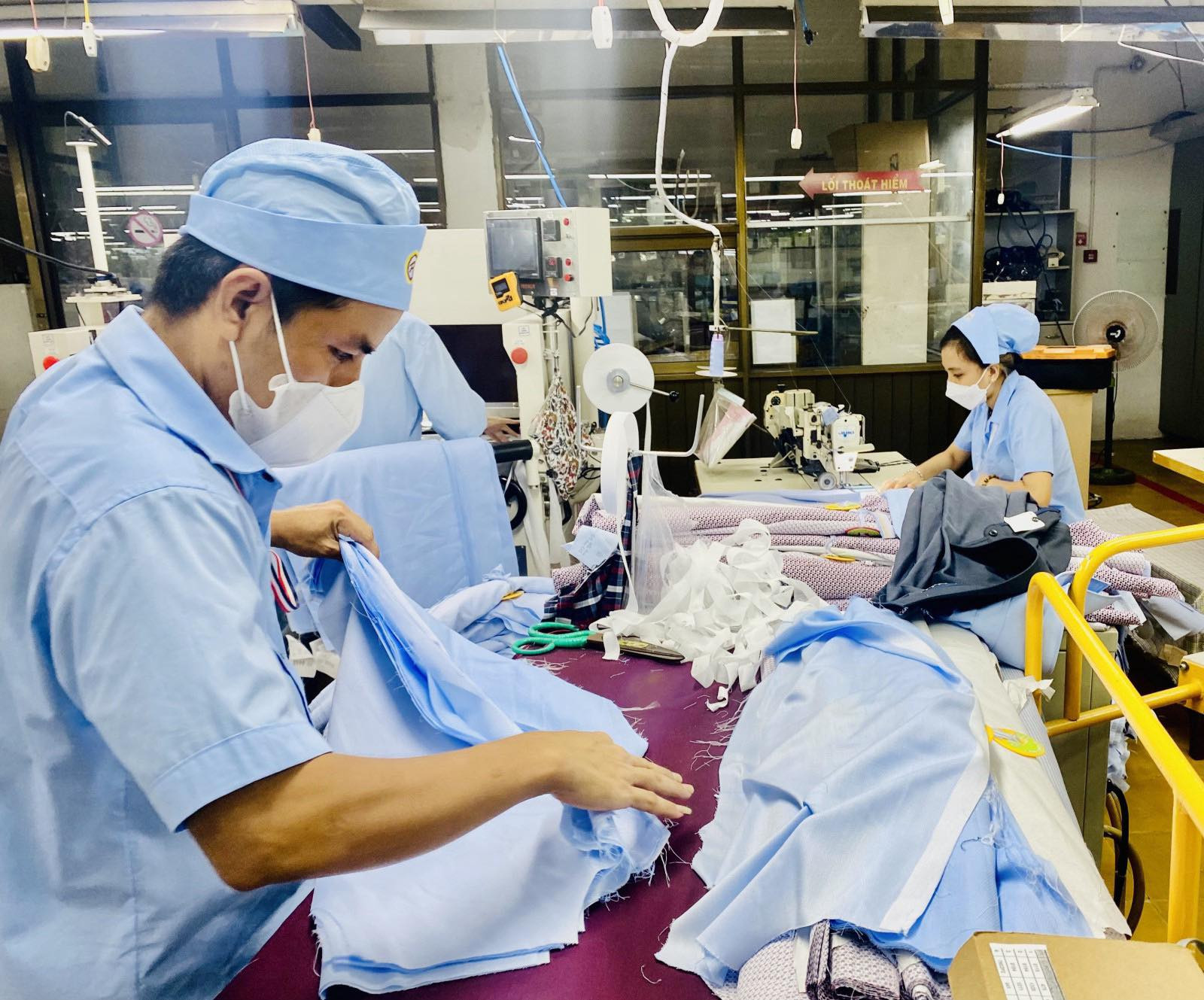 |
Mr. Phan Thanh Duc also noted that his partners are increasingly discussing green standards during contract negotiations, necessitating businesses to incorporate eco-friendly practices throughout their operations. For instance, they are now using organic dyes instead of chemical dyes, recycled fibers, and environmentally friendly paper products in place of nylon.
“We are finalizing plans to build a new factory that will be fully green, from sourcing raw materials and disposing of waste to utilizing renewable energy,” said Mr. Duc.
The green transition is not limited to manufacturing; service industries are also facing pressure to adapt.
Mr. Tran Tien Dung, Chairman of the Haiphong Logistics Association, believes that after the COP26 conference, the government’s commitment to Net Zero by 2050 has spurred high-end clients from the US and Europe to commit to Net Zero by 2030. As a result, starting now, we must prioritize sustainable development to compete with other countries for FDI and among domestic service providers. Businesses that embrace sustainability early and aggressively will have a better chance of attracting premium customers.
Industrial Parks Must Go Green As Well
At a recent workshop, Ms. Vuong Thi Minh Hieu, Deputy Director General of the Economic Zone Management Department (Ministry of Planning and Investment), highlighted that Vietnam has signed 16 FTAs and is in discussions for three more. These FTAs emphasize green and sustainable production processes and supply chains, which are crucial for Vietnamese businesses to enter demanding markets.
The goal of promoting sustainable industry has also been incorporated into the United Nations’ sustainable development commitments. Similarly, the National Strategy and Green Growth for 2021-2030 and the government’s commitments at COP26 highlight the urgent need for the industrial production sector to transition to a green and sustainable path.
Traditional industrial parks will evolve to meet these demands, aligning with international standards. The core principle of sustainable industrial park development is industrial ecology, transforming linear production models into circular economies. Within this framework, industrial ecosystems operate like natural ecosystems, where the output of one production process becomes the input for another. Similarly, by-products or waste from one production process serve as valuable raw materials for other processes.
In an interview with us, a representative from Becamex IDC – one of the largest industrial park investors in Binh Duong province, acknowledged the emergence of the new “Net Zero” wave. As a result, businesses must prepare for this race to achieve maximum efficiency.
To that end, the company has adopted a strategy of developing a green, smart, urban industrial ecosystem grounded in ESG criteria and Net Zero objectives. This is because the current global trend is toward sustainability and responsible business practices.
This smart, urban, green industrial ecosystem will prioritize the utilization of clean energy, digitize and enhance the management and operation of industrial parks, emphasize centralized management, and promote the adoption of sustainable practices. Community outreach, raising awareness about Net Zero, and fostering sustainability will be integral components.
Becamex VSIP’s power company will offer clean energy solutions to its customers. Furthermore, the company will launch pilot projects for rooftop solar energy and energy storage systems.
“We are also implementing a project to plant one million trees. With specific targets for each park and year, planting one million trees could reduce approximately 85,000 tons of CO2. Moreover, utilizing renewable energy sources within the Becamex ecosystem will reduce emissions by nearly 2 million tons of CO2 annually,” the representative added.
In an interview with reporters, Mr. Nguyen Hong Linh, Secretary of the Dong Nai Provincial Party Committee, noted that businesses are becoming increasingly aware of environmental issues. Several industrial parks have already adopted ecological models compliant with government decree No. 35/2022/NĐ-CP. Existing industrial parks must develop plans for a gradual transition.
According to Mr. Nguyen Hong Linh, businesses in emission-intensive industries such as plastics, steel, cement, and aviation are also aiming to minimize their emissions. Companies must purchase an equivalent amount of carbon credits to offset excess emissions.
For example, a manufacturing company that emits 1,000 tons of carbon above the allowed limit must purchase additional carbon credits to compensate for the excess emissions. This creates a level playing field with industries that absorb carbon, such as forestry and sustainable agriculture. This approach, successfully implemented in numerous countries worldwide, fosters industry-wide collaboration to protect the environment and drive sustainable growth.
“As part of the government’s plan, a carbon credit market will be established soon, allowing businesses and organizations to buy and sell credits,” noted the Secretary of the Dong Nai Provincial Party Committee. “In the future, markets will prioritize green, sustainable, and transparent standards. Products that do not meet these criteria will be barred from trade.”
By Tam An


